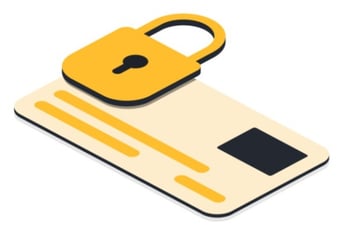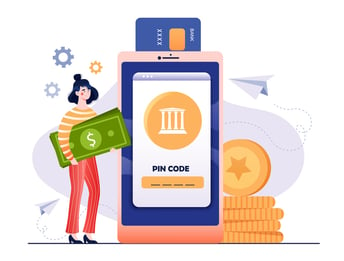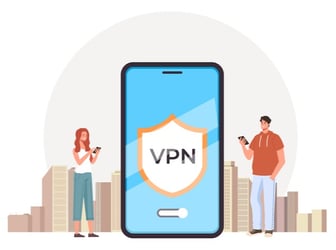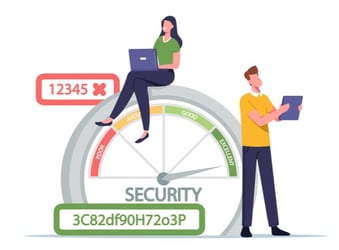Estimated Reading Time: 3 minutes
Maybe you know a close friend that's experienced a difficult and stressful fraud incident, or perhaps you've just read some jarring statistics about the frequency of identity theft. Worse yet, you may have dealt with your own harrowing tale of identity theft. Whatever the case may be, you're likely feeling as if there's not much you can do to protect yourself. Rest assured; this sentiment is common. Iris' latest cybercrime study showed that 65% of consumers feel they “don’t know where to begin to protect themselves from identity theft or cybercrime.” And if you can, rest doubly assured: there are some fairly simple things you can do to help protect yourself from identity theft.
Let’s take a look at a handful of ways you can help reduce your identity theft risk:
1. Put a freeze on your credit
A credit freeze essentially blocks access to your credit profile, which means lenders will not be able to extend credit in your name while the freeze is in place. It’s free to place, and you can temporarily lift the freeze if you need to apply for new credit – it will prevent both you and identity thieves from getting a loan! To freeze your credit, contact each of the three credit bureaus (Equifax, Experian, and TransUnion).

2. Routinely review your financial statements
Doing so means you’re more likely to catch any suspicious activity early, which can minimize damage and save you from headaches. Typically, the earlier fraudulent activity is caught, the easier it is to resolve and have the charges removed.
3. Avoid public wi-fi
While using public wi-fi can be incredibly convenient, it also carries some serious security risks. Unfortunately, hackers can easily compromise and infiltrate public wi-fi networks – intercepting any of the information that you input while connected. This is why, if you ever HAVE to connect to public wi-fi, it is imperative to never access any sensitive accounts. This includes your email, financial accounts, and any online shopping. If you must, use a Virtual Private Network (VPN), which will keep your data encrypted in case there are any prying eyes.

4. Keep your passwords unique and strong
With almost everything digitized today, the importance of using secure passwords is only increasing. Make sure your passwords don’t include any personal information and try make up nonsensical words or phrases (this makes it more difficult for hackers to guess them). The longer the password, the better. Lastly, it’s important to never use the same password across online accounts. If one was compromised, this leaves your other accounts exposed.

5. Consider an identity theft protection service
While there is much you can do yourself, somethings are unfortunately out of our hands, like scouring the dark web for any of your personal information or credentials. Thankfully, there are plenty of identity theft protection services available, like Iris' OnWatch service. OnWatch will alert you the moment any of your sensitive data appeared on the dark web so that you can take immediate action. And, if you ever did become victimized, we have 24/7 award-winning Resolution Specialists that will take the burden of restoring your name off your shoulders.
Keeping these best practices top of mind can help reduce your risk of ever falling victim to identity theft. Remember, identity thieves will almost always go after the most vulnerable. Taking these five simple actions will make it much more difficult for any fraudsters to make you a victim



.png?width=102&height=102&name=Iris-Generali-Logo-White%20(1).png)




